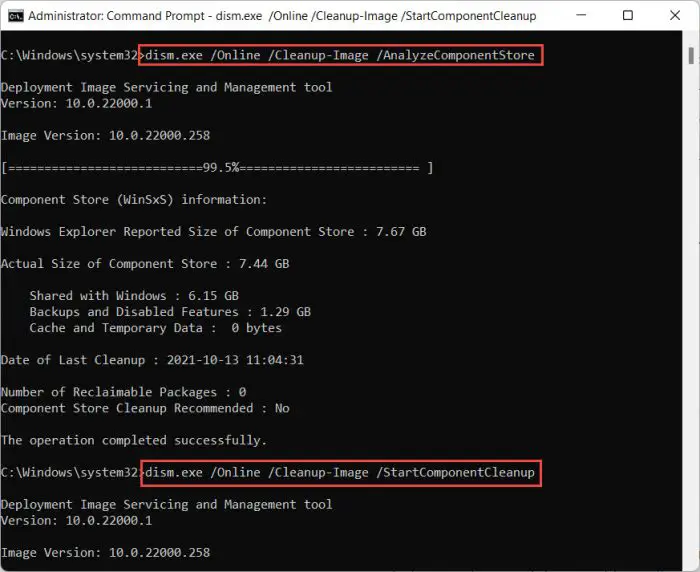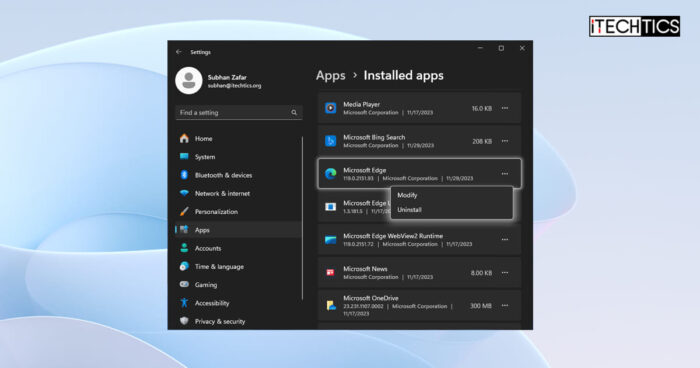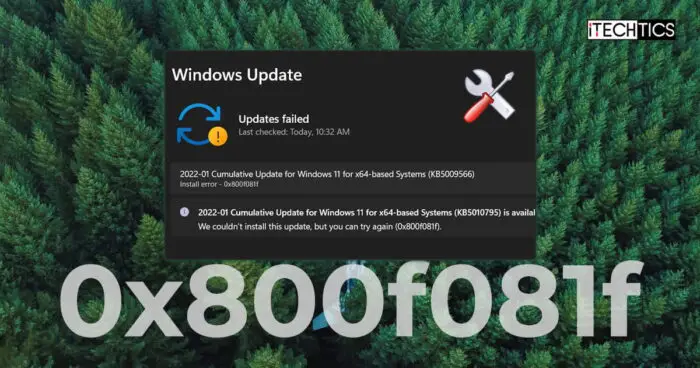Even though Microsoft has released Windows 10 22H2, the Release Preview channel for Windows 10 remains on 21H2. They have now published KB5018482 for the Insiders on the Release Preview channel on Windows 10.
Installing this update upgrades the operating system’s build to 19044.2192.
This flight does not include any new features, but a plethora of fixes. Let us now dig into the other improvements this update brings.
New in Windows 10 Build 19044.2192
The following list of fixes and improvements are included in this flight:
- An issue that affects Distributed Component Object Model (DCOM) authentication hardening has been fixed. Windows will now automatically raise the authentication level for all non-anonymous activation requests from DCOM clients to RPC_C_AUTHN_LEVEL_PKT_INTEGRITY.
- A DCOM issue that affects the Remote Procedure Call Service (rpcss.exe) has been addressed. The authentication level has been raised to RPC_C_AUTHN_LEVEL_PKT_INTEGRITY instead of RPC_C_AUTHN_LEVEL_CONNECT if RPC_C_AUTHN_LEVEL_NONE is specified.
- An issue that causes an OS upgrade to stop responding, and then fail, has been fixed.
- An issue that affects the Microsoft Azure Active Directory (AAD) Application Proxy connector is fixed.
- An issue that affects the font of three Chinese characters is fixed. When you format these characters as bold, the width size used to be wrong.
- An issue that affects Microsoft Direct3D 9 games is fixed. The graphics hardware stops working if the hardware does not have a native Direct3D 9 driver.
- A graphical issue in games that use Microsoft D3D9 on some platforms is fixed.
- An issue that affects Microsoft Edge when it is in IE Mode is addressed. The titles of pop-up windows and tabs used to be wrong.
- An issue that affects Microsoft Edge IE mode has been fixed. It stopped you from opening web pages.
- An issue that might cause an application to stop responding is fixed. This used to occur when the input queue overflowed.
- An issue that affects input method editors (IME) from Microsoft and third parties is taken care of. They stopped working when you close the IME window.
- An issue that affects the lasso tool in a graphics editing program is fixed.
- An issue that affects Miracast advertisements is addressed. This issue occurred on Surface Hub devices under certain conditions.
- An issue that affects some drivers is addressed. They used more power when you play hardware-protected Digital Rights Management (DRM) content.
- An issue that affects .msi files is addressed. Windows Defender Application Control (WDAC) used to ignore them when you disabled script enforcement.
- An issue that affects a remote desktop Virtual Desktop Infrastructure (VDI) scenario. The session occasionally used the wrong time zone.
With these fixes, Microsoft has not mentioned any known issues.
How to Install Windows 10 KB5018482 (Build 19044.2192)
To install this update, you need to be running Windows 10 and subscribed to the Release Preview channel. If you have enabled Windows Updates, you will automatically get a “New features are ready to install” prompt.
If not, follow these steps to install this update:
-
Navigate to the following:
Settings app >> Update & Security >> Windows Update
-
Here, click Check for updates on the right.
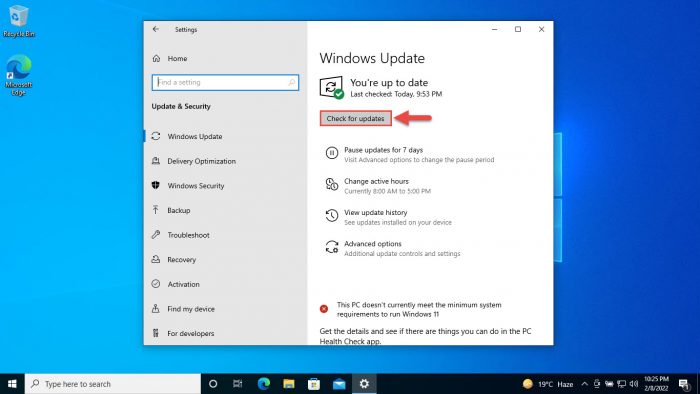
Check for pending updates -
The following update will now begin downloading and installing automatically:
2022-10 Cumulative Update Preview for Windows 10 Version 21H2 for x64-based Systems (KB5018482)
When it completes, click Restart now to finalize the installation.

Restart computer
Once the computer reboots, you can check that it has been updated to build 19044.2192 by typing in winver in the Run Command box.
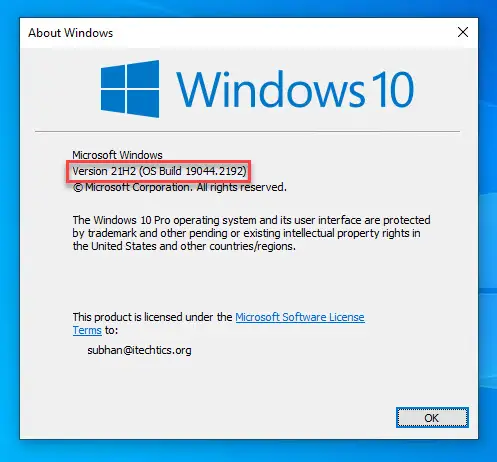
Rollback/Uninstall Windows 10 Preview Update
If you do not wish to keep the installed preview update for some reason, you can always roll back to the previous build of the OS. However, this can only be performed within the next 10 days after installing the new update.
To roll back after 10 days, you will need to apply this trick. Note that this needs to be applied before the 10 days are over.
You can also resort to uninstalling the update using the method below.
Uninstall KB5018482 Using Command Prompt
Since we have installed this update using Windows Update, it will not be listed in the list of updates but you can see it in the command line, and thus uninstall it. Here is how:
-
Run the following cmdlet in an elevated Command Prompt:
wmic qfe list brief /format:table
Check installed updates This will show all the updates installed on the computer. Make sure that the update(s) you want to uninstall is in this list.
-
Now run the following command to uninstall the update while entering the KB number of the update you want to remove:
wusa /uninstall /kb:5018482 -
Now click Yes from the popup to confirm the action.

Uninstall update -
The update will now begin uninstalling. When it completes, restart the computer for the changes to fully take effect.
Cleanup After Installing Windows Updates
If you want to save space after installing Windows updates, you can run the following commands in Command Prompt:
DISM.exe /Online /Cleanup-Image /AnalyzeComponentStore
DISM.exe /Online /Cleanup-Image /StartComponentCleanup